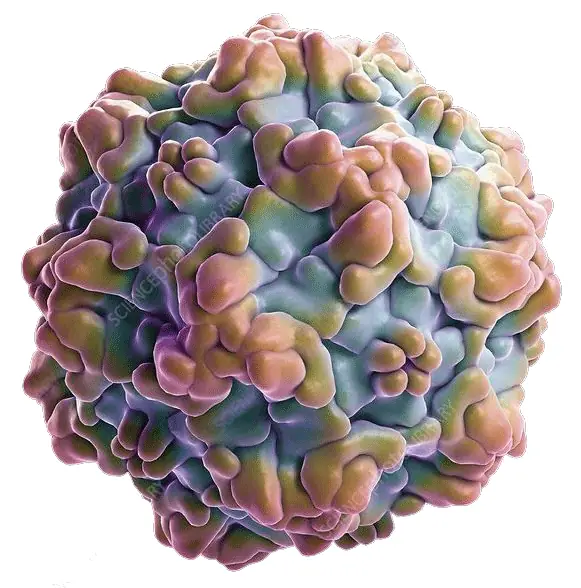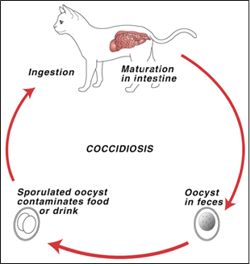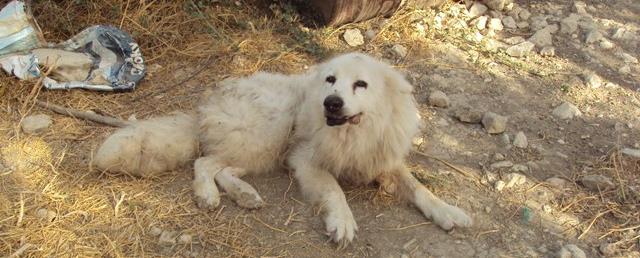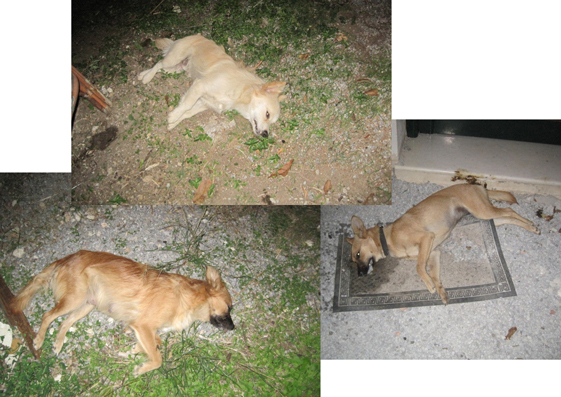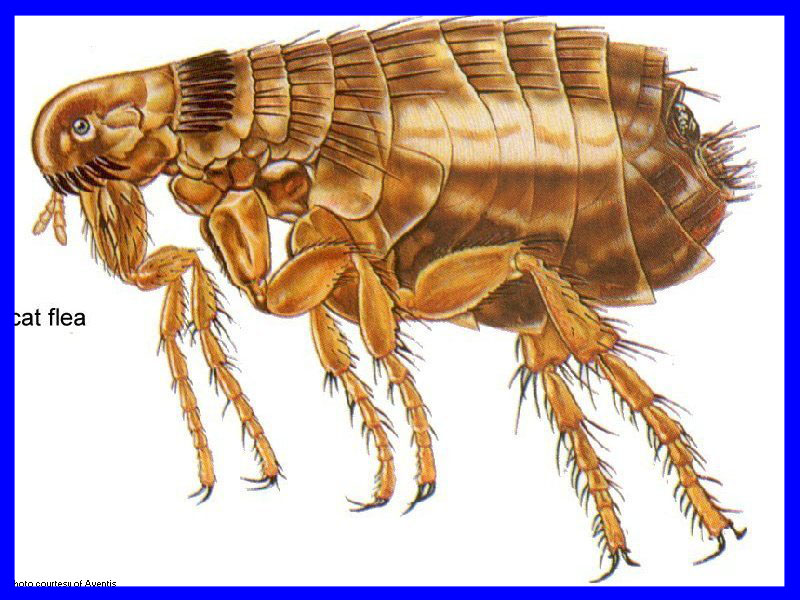| Overview of disease This virus causes severe bowel inflammation & is probably the greatest disease threat to any rescue facility, it has a very high death rate, particularly in unvaccinated kittens. Closely related to Parvovirus found in dogs but it does not transfer from dogs to cats or cats to dogs or humans |
| Transmission Direct or indirect contact with contaminated faeces, e.g. on food dishes, bedding, etc, fleas. Can pass from queen to kittens across the placenta |
| Contagious nature Highly contagious |
| Incubation period 2-10 days |
| Signs of infection Severe vomiting and diarrhoea, fever, dehydration, weight loss, lack of appetite, depression. Occasionally kittens will be found dead, having shown no signs of the disease previously |
| Carrier status Cats infected with FPV can continue to excrete the virus for at least six weeks following infection |
| Diagnosis Blood test and faecal sample |
| Treatment Requires aggressive treatment if the cat is to survive, as this disease can kill cats in less than 24 hours. Treatment involves whole blood transfusion to improve pancytopenia, intravenous fluids as most cats are dehydrated, injections of vitamins A, B, and C, IV antibiotics to prevent septicemia, which develops in most cats with feline panleukopenia if antibiotics are not used, and hospitalization |
| Prognosis Of affected kittens that are two months or less of age, 95% die regardless of treatment. Kittens that are more than two months old have a 60–70% mortality rate with treatment and a nearly 100% mortality rate if not treated. Adult cats have a 10–20% mortality rate if treated, and an 85% mortality rate if not treated. Elderly cats have a 20–30% mortality rate if treated and a 90% mortality rate if not treated |
| Prevention Feline distemper vaccination |
| Homing Good if fully recovered |
| Husbandry Isolation pens and thorough barrier nursing |
| Survival in the environment The Parvovirus family of viruses are particularly long-lived in the environment, lasting anywhere from 1 to 7 months — commonly surviving 5-7 months in an outside environment. Complete eradication of the virus is often impossible. |
| Zoonosis (infectious to people) No |
| Disinfectant susceptibility Trigene Advance, Virkon & Bleach (5%) ( diluted 1 part bleach to 32 parts water @32ml/litre of water) |
Antimicrobial Spectrum of Disinfectants
Sources: Feline Advisory Bureau, Wikipedia
Successful Treatment of Feline Panleukopenia
Tips to Prevent and Manage Canine Parvovirus (external link)
American Society for the Prevention of Cruelty to Animals
